I recently acquired a new (all region) Blu-ray from an Australian company Via Vision that made me insane. It’s a gorgeous new Blu-ray of A Rage to Live, a 1965 film directed by Walter Grauman and starring the incandescent, husky-voiced, dark-haired beauty Suzanne Pleshette. The film was based on a sprawling John O’Hara book which has been streamlined into a sordid potboiler about a defiantly unconventional, unashamedly sexual woman.
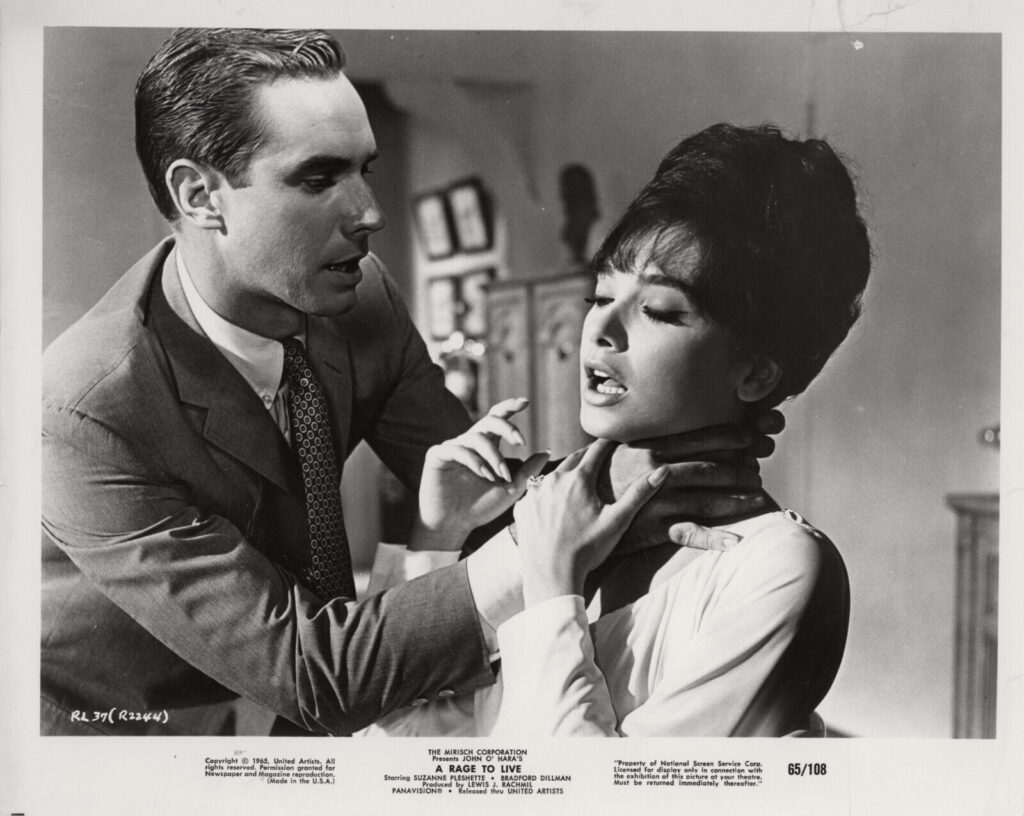
I admit I love Hollywood movies from the late 50s and early 60s, because of the Production Code at the time. They made sex dirty again (aka fun), and promiscuous women had to pay for their immoral indiscretions- either with suicide, misery or murder. But that was the exact reason moviegoers flocked to see those kind of films- for the titillation and to vicariously fantasize what it would be like to throw caution to the wind and their legs in the air.
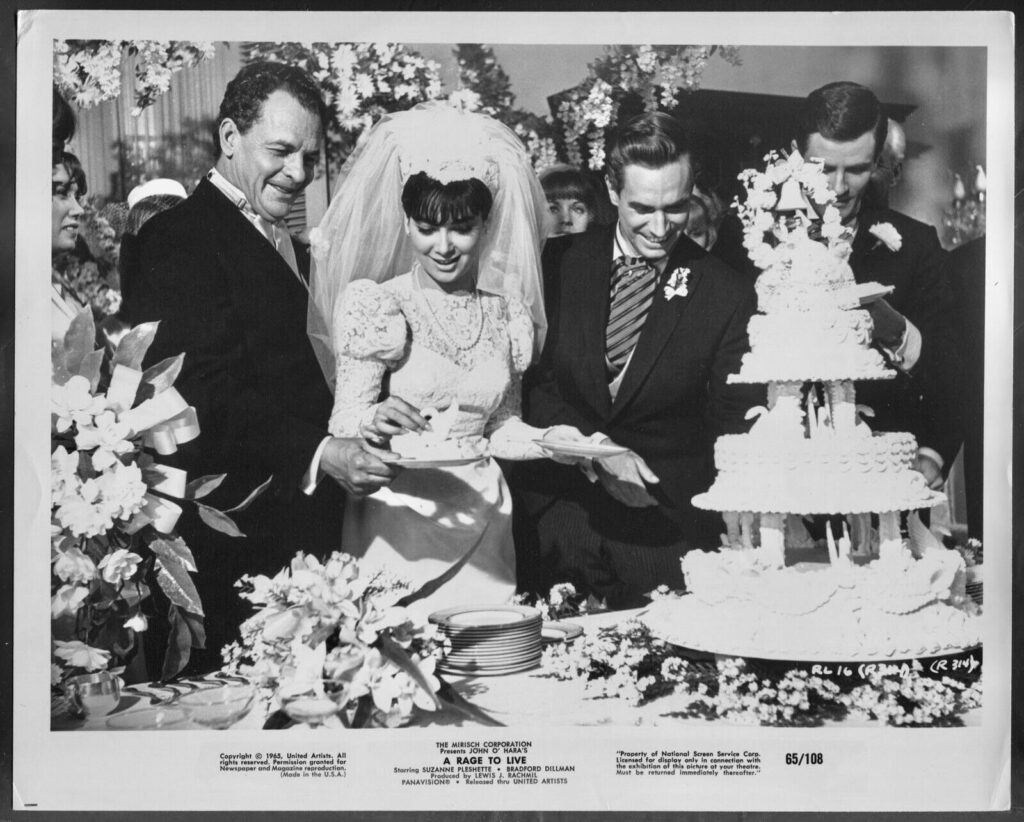
A Rage to Live (1965) The John O’Hara novel is set in Pennsylvania and its heroine is the wealthy, privileged Grace Caldwell (Suzanne Pleshette). The book exposes small-town hypocrisy and especially the double standard of men who play the field being acceptable, whereas women who express their sexuality being reprehensible or “damaged goods.” O’Hara doesn’t seem judgemental about Grace and seems to admire the way she lives her life on her own terms. In the film, we see Grace as a young teen, recklessly making out with her brother’s jock friend (Mark Goddard) and later necking with a guy outside in a car while a lavish party was being thrown at her house. When her mother is called up by a neighbor to complain about Grace’s wanton ways, Grace listens in at the extension and then quickly hurries into her room and jumps under the covers and shuts off the light to avoid a confrontation. But here is where the movie gets subversive. Suddenly Grace sits up, turns on the light and goes to her vanity, brushing her hair as her mother enters the room to grill her about her slutty ways. Grace calls the stories about her a lie and is defiant- it’s obvious she doesn’t see anything wrong in her actions. Her mother sheepishly goes down the stairs and collapses in a heap on the floor.

The same thing happened in Douglas Sirk’s Written on the Wind when the brazen daughter (Dorothy Malone) is dragged home after picking up a gas station attendant (Grant Williams) who says, “Your daughter’s a tramp, mister.” As dad wearily climbs the staircase to confront his daughter, Malone is doing a wild, erotic mambo in her room and he falls down the staircase to his death. Parents with highly sexual offspring never fare well in these films.
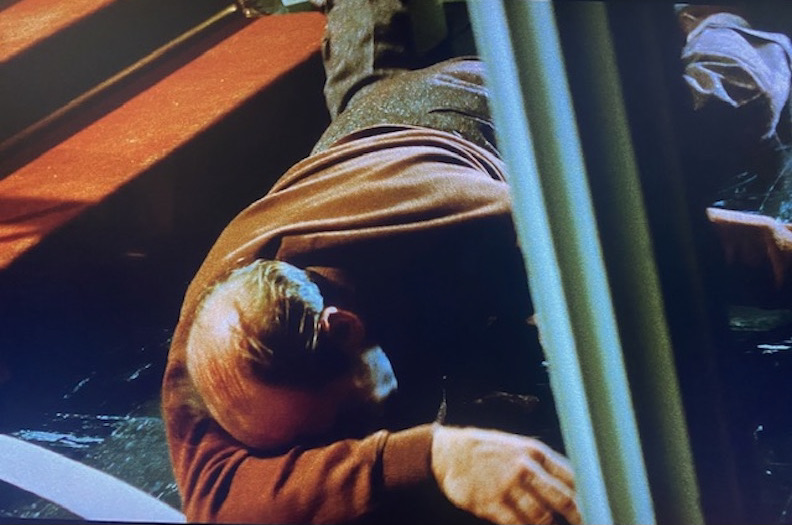
In A Rage to Live, Grace’s mother doesn’t die then but when they vacation at an exotic seaside resort, Grace sneaks out to have sex with a hotel waiter on the beach and her mother suffers a fatal heart attack. Typical of these films, if you don’t adhere to convention, death and guilt follow. Ironically, director Grauman’s previous film was the controversial thriller Lady in a Cage starring Olivia de Havilland about a woman trapped in her home elevator. In A Rage to Live, Grace is similarly trapped in a cage by the rigid conventions of the time. For her, sex is a release, a pleasure, and she is endlessly punished during the film for giving in to her desires.
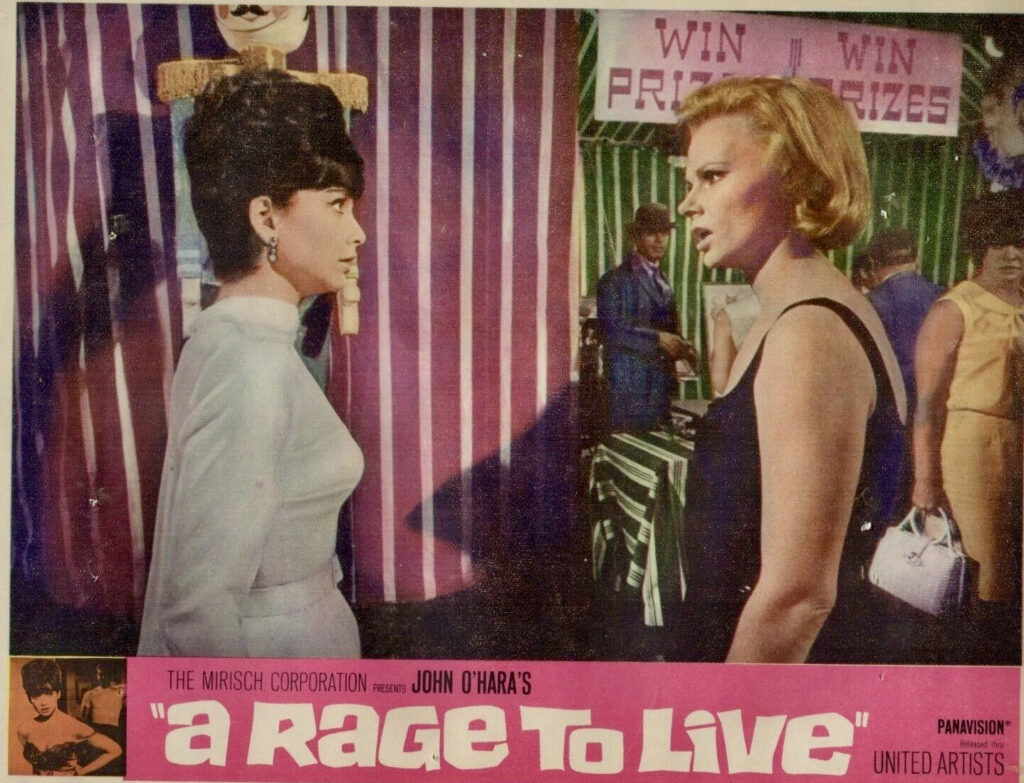
Grace attempts to normalize her life by getting married to a kind, decent man (Bradford Dillman), and even has a child and moves with him back to their family farm.
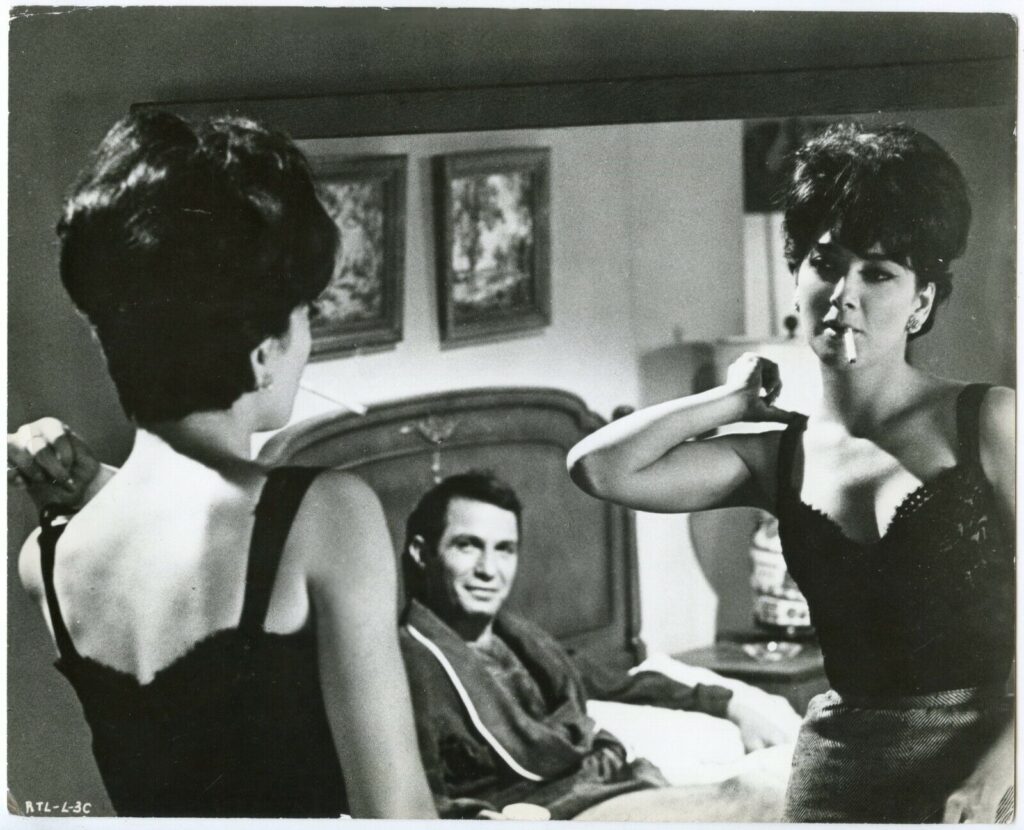
But construction engineer Roger Bannon (sweaty, sexy Ben Gazzara) shows up to do some work on the barn and when she drives him to his office during a rainstorm he confesses his lust for her. That scene is key to seeing how great Pleshette can be. Her face in the car is impassive, but slight facial movements beautifully reveal her conflicting emotions and when he leaves the car and goes up on the porch, he turns around and she is just sitting there in the car, frozen. Then she invitingly opens the car door. When she eventually decides to end their motel trysts Bannon is left bitterly shouting at her in the middle of the road, “You rich lousy slut!”
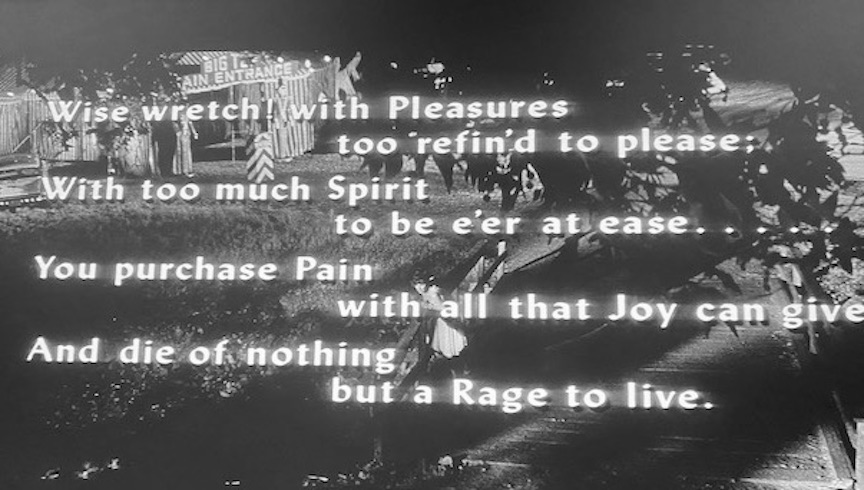
The film ends with a quote from Alexander Pope: “Wise wretch! with Pleasures too refin’d to please: With too much Spirit to be e’er at ease….You purchase Pain with all that Joy can give. And die of nothing but a Rage to live.” Oh brother.
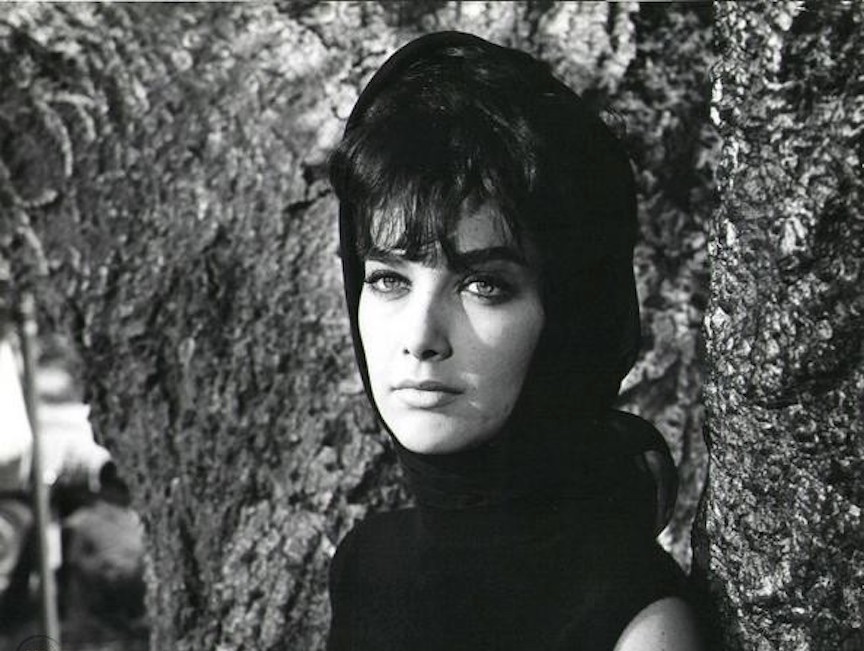
I absolutely love this film. For many reasons. It’s hackneyed melodrama. The eye-rolling morality. That overly-dramatic Nelson Riddle score. But mostly for Suzanne Pleshette. God, is she great. There are two fantastic tributes to her as extras on the Blu-ray which lament the fact that her movie career wasn’t what it should have been. Not that she didn’t have certain success, especially on TV when she played the sardonic, smart wife in The Bob Newhart Show. That’s the thing, she always seemed like the smartest person in the room. There was a steely intelligence in her performances. Watch her in Alfred Hitchcock’s The Birds. She made that school teacher come to life on camera (especially all the unresolved feelings for Rod Taylor’s character in the movie). She was so vibrant and sympathetic it made her demise all the more heartbreaking. And what a beauty.
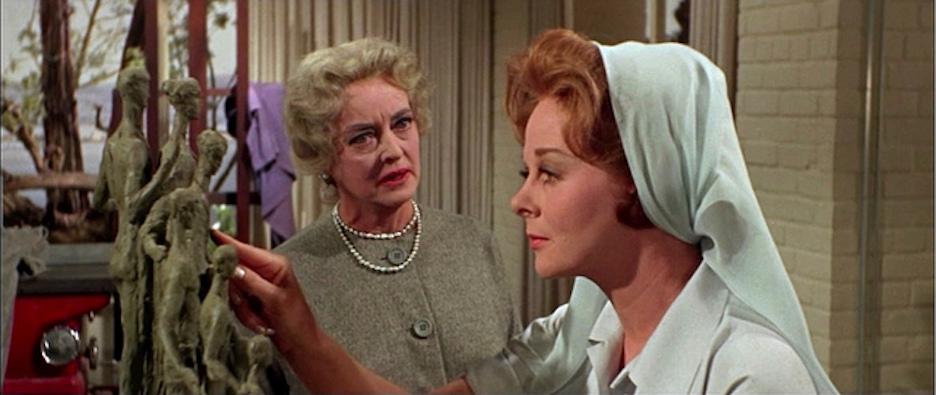
Some of my favorite movies of the late 50s and early 60s have to do with gals with loose morals. The florid dialogue is priceless and hilarious. Where Love Has Gone (1964) stars Susan Hayward as a famous sculptor who indiscriminately has sex with strangers. Her pious society mother (Bette Davis) admonishes her daughter, “You have made it publicly obvious that you have only one concept of love, a vile and sinful one!” To which, Hayward defiantly replies, “When you’re dying from thirst, you’ll drink from a mudhole!”

Claudelle Inglish (1961) stars Diane McBain as a share-cropper daughter who “dates” scores of boys just to get presents from them. “Oh Papa,” she confesses, “I wanted to be bad- as bad as could be!”
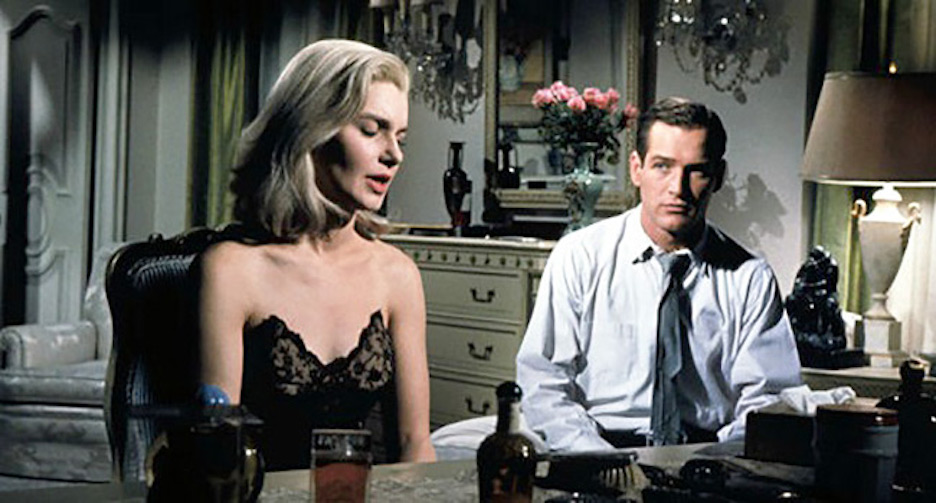
In From the Terrace (1960), Joanne Woodward plays the bored debutante that marries an ambitious executive (Paul Newman), but his work keeps him on the road so much she indiscriminately sleeps with other men to pass the time. Her husband calls her and demands she not spend time with her ex, sleazy Jim Roper (Patrick O’Neal). “I don’t want that guy in our apartment!” “I’ll tell him,” she says, then hangs up the phone and climbs back into bed with Jim, wearing a pink negligee, seductively saying, “You’re not to come here anymore.”
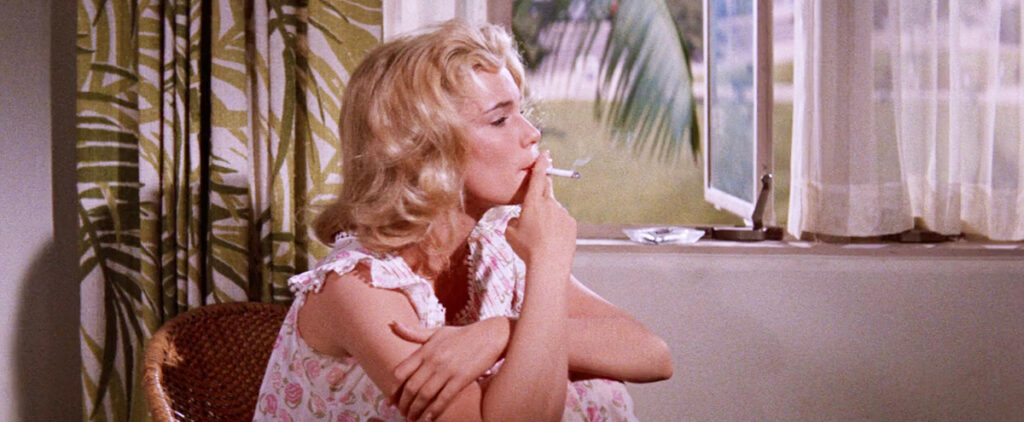
Poor gullible Melanie (Yvette Mimieux) in Where the Boys Are (1960) gets to Fort Lauderdale for “Spring Break” and becomes “lover” to a series of college jocks who pass her around until she wanders, disheveled, into traffic. Later, her roommate (Dolores Hart) grouses to her boyfriend (George Hamilton), “I blame all of you who think of a girl as something cheap and common just put here for your personal kicks!”
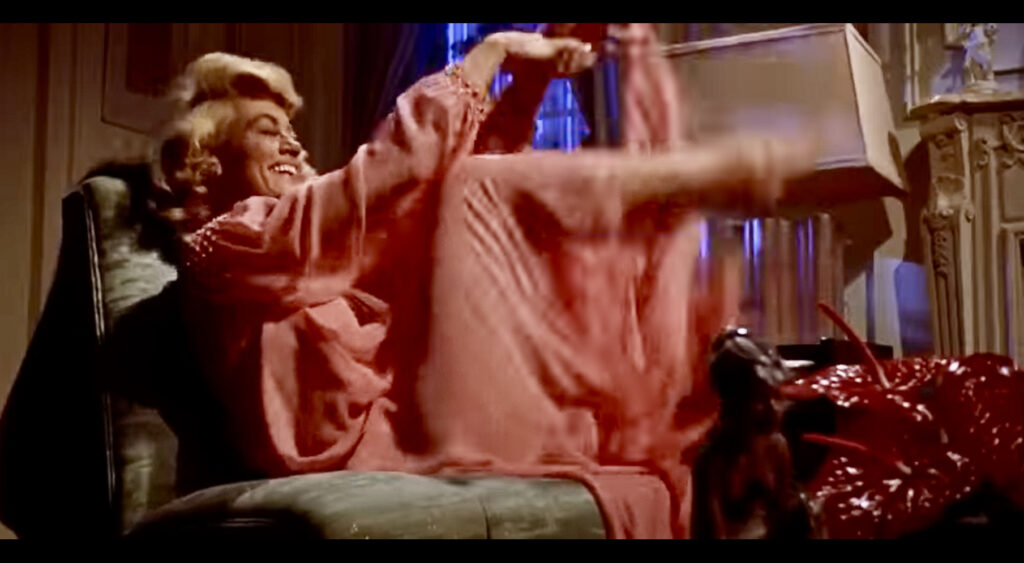
Dorothy Malone’s oil tycoon’s daughter Marylee in Written on the Wind(1956), frustrated because of her unrequited love for her brother’s best friend (Rock Hudson), picks up guys all over town. When her brother (Robert Stack) calls her a “filthy liar!” she responds, “I’m filthy- period!”
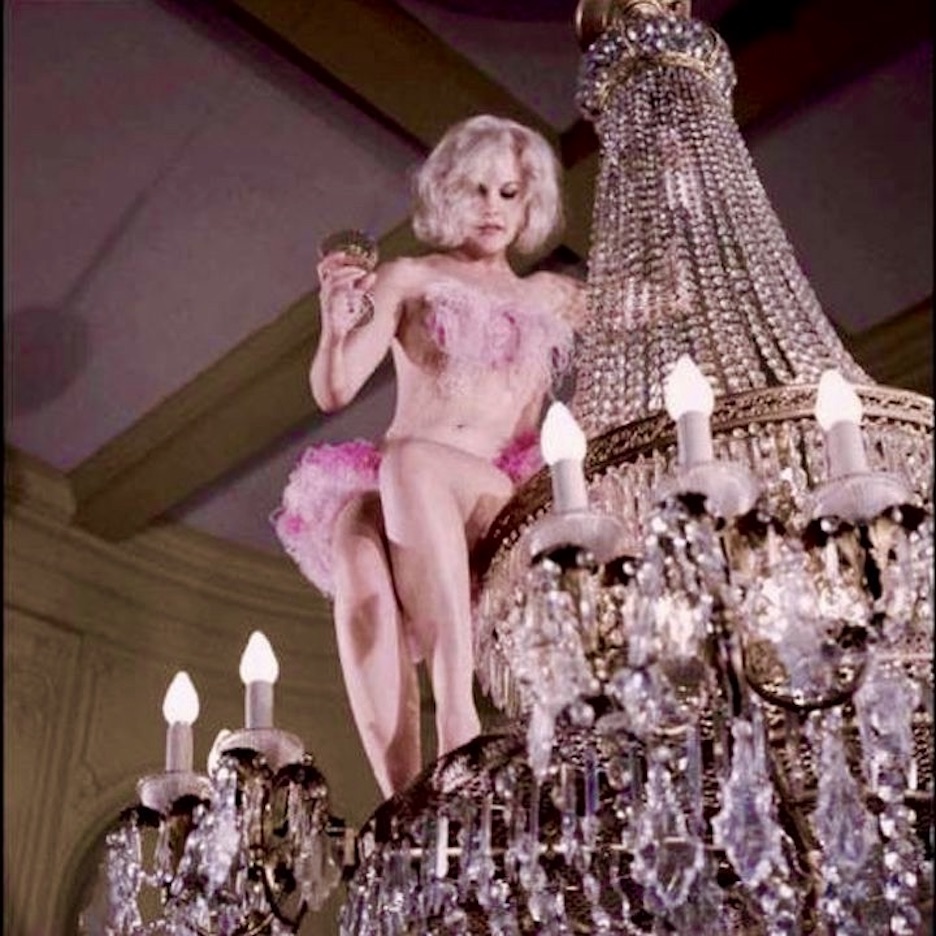
The Carpetbaggers (1964) stars Carroll Baker as doomed Harlow-esque movie star Rina Marlowe, drinking and living it up wildly- even hanging off a chandelier in Paris in one memorable scene. A studio mogul (Martin Balsam) talks disparagingly about her, “By the thousands they write for a photograph, an autograph, a lock of hair. If they only knew it all they have to do is push a doorbell, they get everything.”
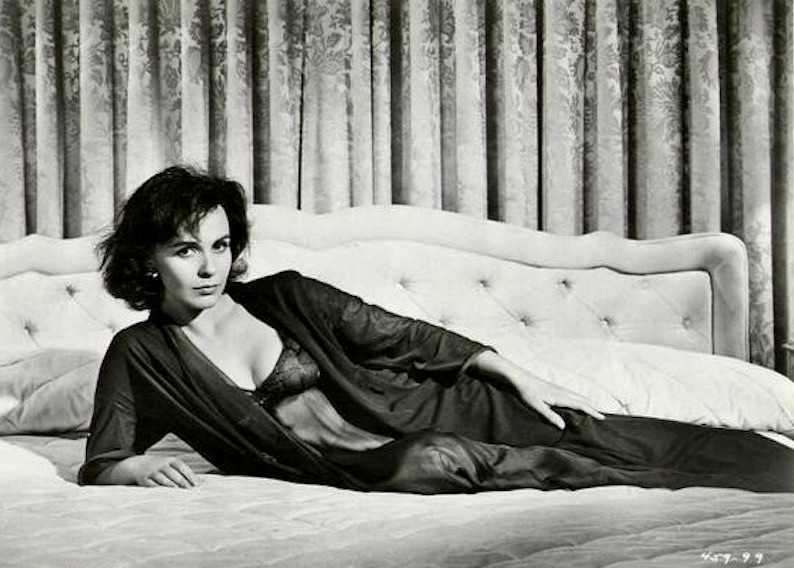
The Chapman Report (1962) was supposedly about a serious survey of suburban women’s sex lives. But it was an excuse to wallow in “adult” issues on screen. Claire Bloom plays a divorcee and shameless nymphomaniac who confesses, “I really wanted my husband, but I wanted everyone else too.”
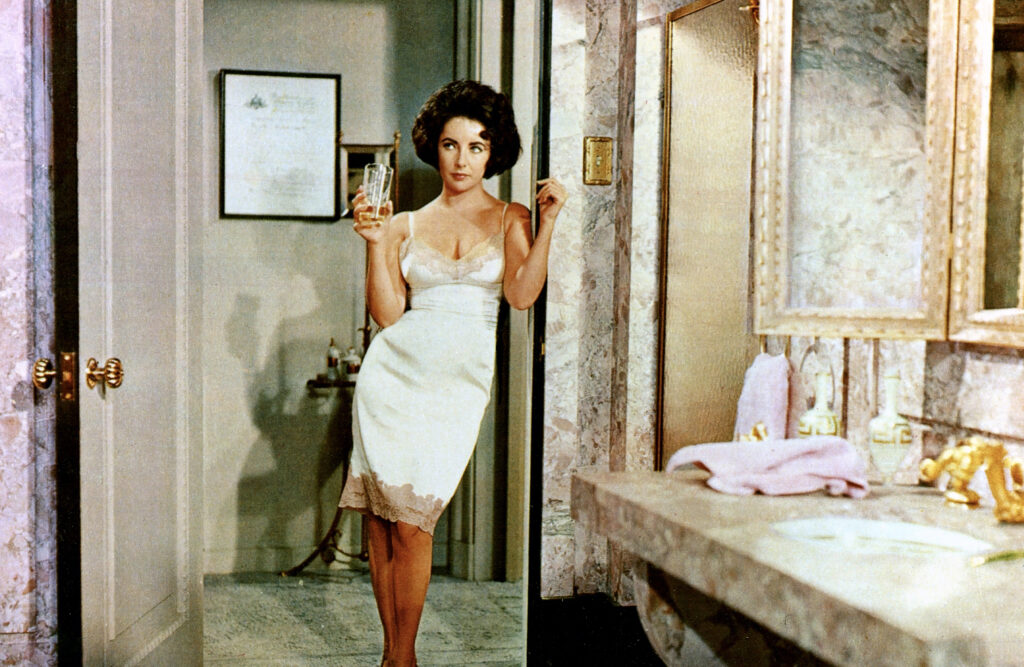
Butterfield 8 (1960) stars Elizabeth Taylor as model and high-class party girl- Gloria Wandress, who eventually admits to her mother, “Mama, face it- I was the slut of all time!”
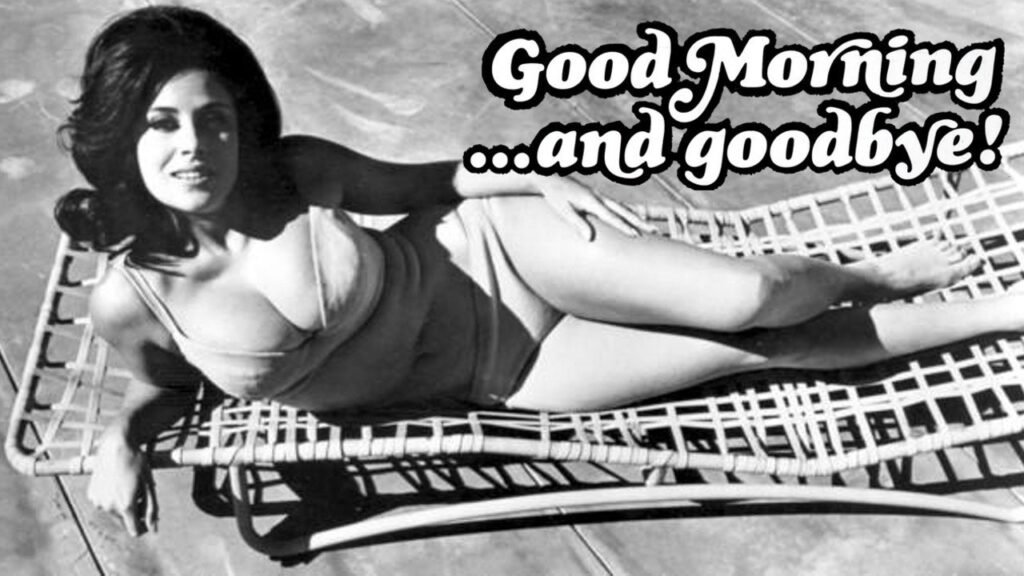
Just a few years later Russ Meyer’s joyfully horny, big-busted women, provocatively dressed, would be shamelessly driving up to a rock quarry in a convertible, leaning on the car horn hoping to get laid in Good Morning…and Goodbye! (1967) Finally, no more guilt trips or bummer finales.
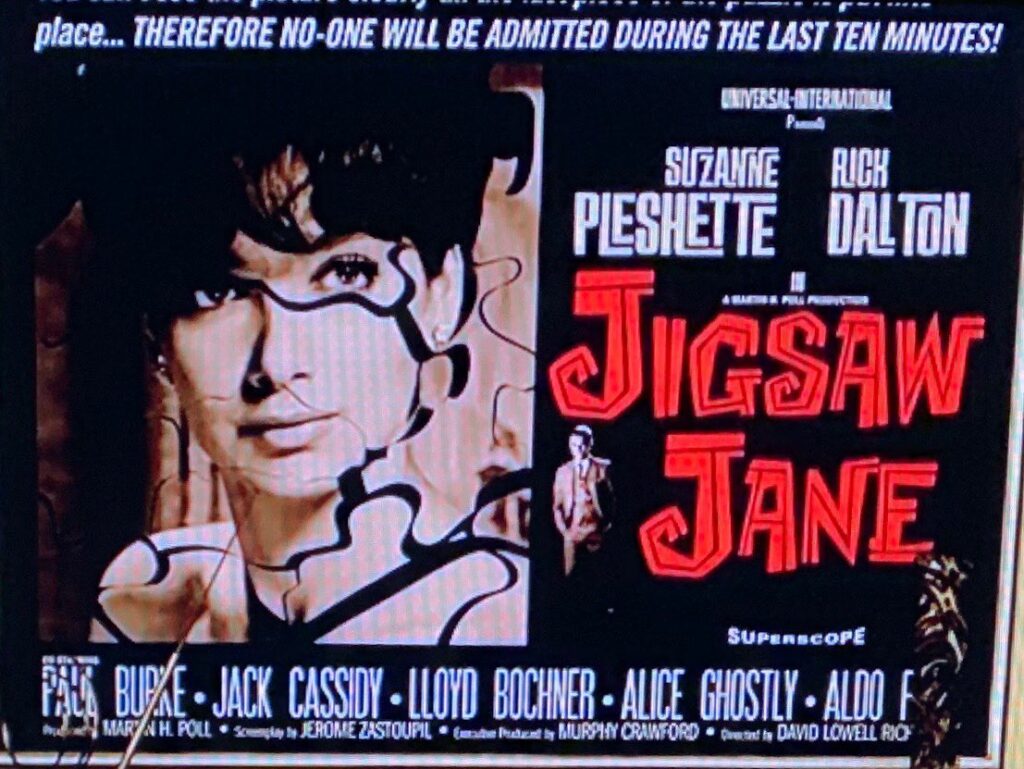
In an extra on the disc: Paralyzed Segments: Suzanne Pleshette Tangled up in Codes, a video essay by Daniel Kremer, he comments on the fake Pleshette poster in Quentin Tarantino’s Once Upon a Time in Hollywood– Jigsaw Jane (a poster reminiscent of Carroll Baker’s Sylvia with a face composed of puzzle pieces). At the end of the video essay he shows a scene from Tarantino’s movie when Brad Pitt’s stunt man tries to bolster his actor buddy’s (Leonardo DiCaprio) spirit as he heads to the set, “Remember- you’re Rick fucking Dalton.” The video essay finishes with its own twist, “She’s Suzanne fucking Pleshette!”
Amen.
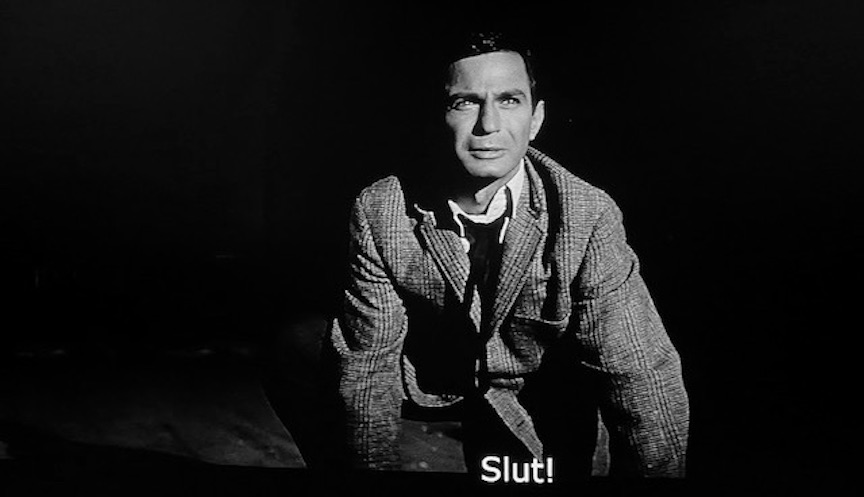
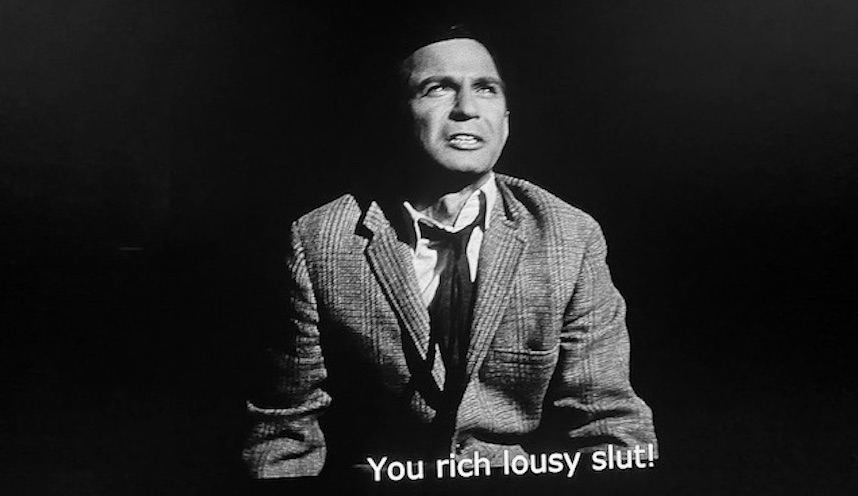

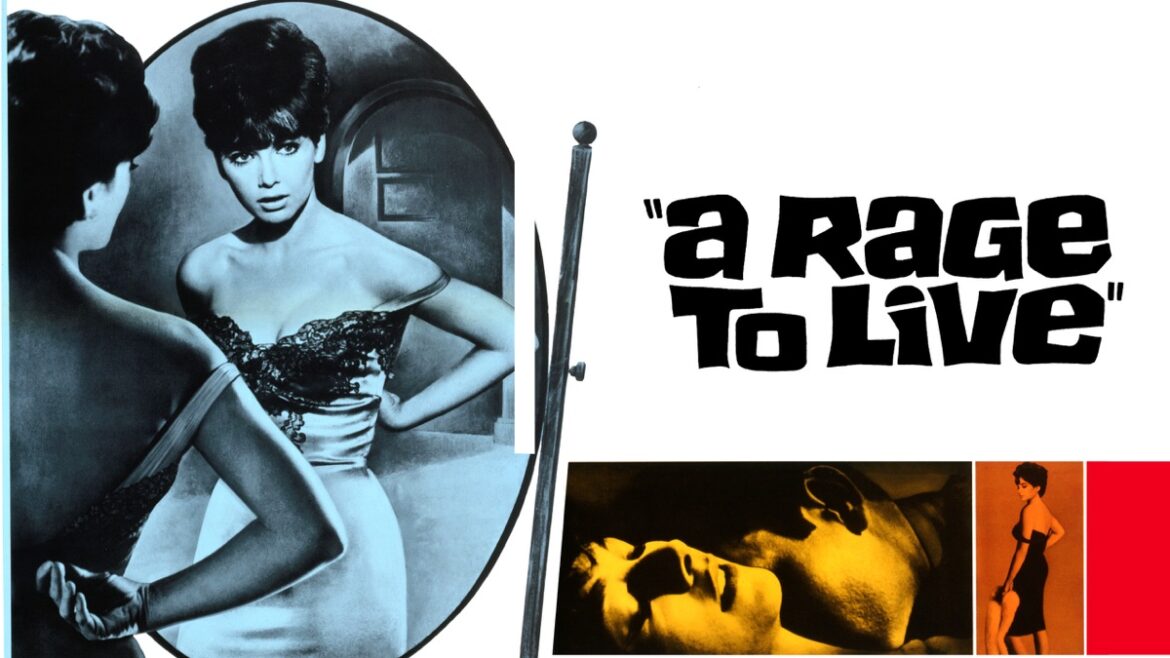
I found a few on Amazon Prime…but many don’t seem to be available. Damn! They all look fun. Thanks Dennis
You have another gem here, Mr. Dermody.
I saw every one of these movies before I entered the convent. Sister Mary Flavian